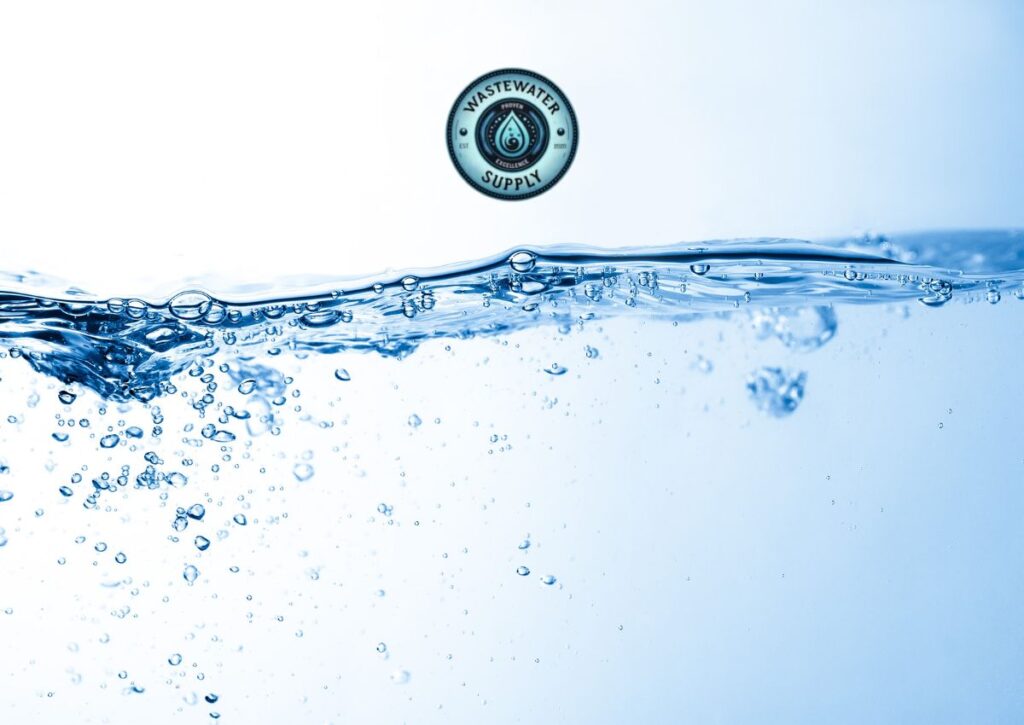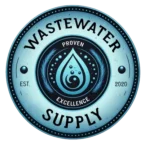
Essential Tips for Optimal Wastewater Treatment
Contents
Wastewater treatment systems are essential for maintaining both public health and environmental integrity. When it comes to optimizing these systems for top performance, a diligent maintenance routine is paramount. This article will delve into waste treatment and offer some top tips to ensure your wastewater treatment system is performing at its best. Here are five essential maintenance strategies to guarantee the optimal performance of your plant.
First and foremost, regular cleaning of all components within your wastewater treatment system is crucial. Build-up and blockages can significantly impede the system’s performance, reducing efficiency and increasing the risk of failures. Make sure to implement a good cleaning schedule that aligns with manufacturer guidelines and environmental compliance standards. Good maintenance means consistent adherence to scheduled cleanings and checks.
Secondly, monitor any signs of wear and tear in your treatment system. Proactive replacement and repair of components ensure that the overall treatment process flows smoothly without sudden breakdowns. Employ predictive maintenance tools and software to get real-time analysis and insights into your system’s health. Proper maintenance here can extend the lifespan of the system significantly while enhancing performance.
Incorporating advanced technology for monitoring and control is another valuable tip for wastewater treatment systems. Implementing smart tech solutions can help in the precise measurement of performance metrics and offer valuable insights into operational efficiencies. By leveraging such technology, operators can achieve the best results and make informed decisions for systems’ enhancement.
Training and upskilling the workforce is another essential element for the optimal performance of wastewater treatment plants. A well-trained team can operate the system efficiently, ensure effective treatment protocols are met, and troubleshoot any issues that might arise during the process. Regular training sessions and workshops can aid your team in staying updated with the latest industry trends and standards.
Lastly, always ensure you have a comprehensive maintenance plan in place. This plan should outline routine inspections, system audits, and emergency response strategies. Regular evaluation and adaptation of this plan will help in identifying any areas of improvement within your water treatment strategy that aims to achieve optimal performance.
Adopting these measures can lead to significant enhancements in your wastewater management’s effectiveness, ensuring that your treatment plant operates at its highest capacity. As we delve further into topics like enhancing septic system function and the critical role of polymers, it’s clear that consistent treatment maintenance is the key driver for success.
Understanding Polymer Use for Enhanced Water and Sewage Treatment
Understanding the role of polymers in sewage treatment and wastewater treatment processes is essential for achieving optimal treatment performance. Polymers are key products that enhance flocculation by binding fine particles together, thereby increasing the efficiency of solids removal in both water and sewage scenarios. When used effectively, polymers can significantly boost the performance of your wastewater treatment systems, including the aeration and sedimentation processes integral to effective wastewater management.
Operators working on enhancing wastewater treatment need to consider the correct type and dosage of polymers to utilize. The right balance ensures optimal control over the wastewater characteristics while maintaining the performance of various treatment equipment. It’s essential to watch for the reactivity of different polymers with other chemicals in the treatment system, as this can greatly influence both the efficiency and cost-effectiveness of the treatment process.
The utilization of polymers varies, requiring operators to understand their specific equipment and process requirements. Implementing the correct polymer system is an important step and should be part of the fundamental maintenance strategy operators engage with as it affects the overall wastewater treatment cycle. Measuring and analyzing the impact of polymers is a continuous process that requires diligent monitoring and adjustment to meet the evolving variables within the wastewater environment.
Ensuring that wastewater treatment plants operate with maximum efficiency through polymer use helps in managing both operational costs and environmental impact. High-performing systems invariably incorporate a polymer strategy that aligns with the objectives of <control and reduction of operational setbacks, thereby amplifying the treatment facility’s overall performance. With thoughtful application and a preventative approach, polymers contribute to a smooth operational flow, minimizing downtime and maximizing system reliability.
Engaging with the right wastewater treatment polymer supplier is critical as they provide both the product and valuable insights into the best use cases for specific wastewater compositions. To drive treatment success, operators must stay informed and continually read updated resources to ensure the latest polymer technologies are utilized.
In conclusion, polymers are a foundational aspect of sewage treatment and wastewater treatment maintenance strategies. They are pivotal products that significantly enhance the system’s function, offering an optimal path to achieving superior wastewater management outcomes. Integrating an effective polymer program within controlled equipment contexts can assure a high-performance treatment system.
Five Maintenance Strategies for Treatment Plant Performance
Achieving the best performance in a treatment plant not only requires advanced technology and state-of-the-art equipment, but it also hinges on implementing effective maintenance strategies. At Waste Water Supply, we understand that regular maintenance is the backbone of seamless operations in your industrial facilities. Here, we explore the top five maintenance strategies that are pivotal for enhancing treatment plant performance, ensuring your systems function optimally and sustain major production demands.
Firstly, scheduling routine checks is crucial. Adopting a preventive maintenance plan involves a systematic approach to examining and servicing equipment components before they fail. This strategy not only enhances the performance of the treatment plant but also boosts efficiency across industrial operations by addressing potential malfunctions proactively.
Secondly, engaging in comprehensive industrial training for your team can significantly impact overall performance. By ensuring employees are educated on the latest technologies and methods, maintenance becomes more effective, reducing downtime and extending the lifespan of critical equipment. Continuous education contributes to more adept management of system processes and fosters a safety-oriented workplace culture, which is indispensable for industries.
Thirdly, utilizing advanced monitoring system technologies aids in optimizing treatment plant operations. By deploying remote sensors and real-time data analytics, plant managers can swiftly identify inefficiencies and make informed decisions. Such advancements in industrial equipment monitoring endow operators with precise insights, mitigating the risks of unforeseen disruptions and substantially improving production service.
Fourthly, adhering to a regular cleaning and sanitation schedule is imperative. Keeping all components of the treatment plant free from contaminants and blockages is essential for seamless functioning. Regular cleaning prevents biofilm buildup and corrosion in equipment, fortifying the entire system and preserving its operational efficiency.
Finally, investing in periodic audits and assessments ensures your industrial equipment and processes are aligned with the highest standards. These evaluations provide a comprehensive review of maintenance practices, identifying areas for improvement and potential upgrades to boost performance. By adopting these five strategies, treatment plant managers can significantly enhance industrial service outputs, paving the way for long-term success and sustainability.
Enhancing Septic System Function and Wastewater Management
To guarantee the optimal performance of your wastewater treatment plant, especially when aiming to enhance septic system function and overall wastewater management, there are crucial maintenance tips to consider. Regular equipment maintenance is paramount in preventing system failures. Ensuring that all wastewater treatment equipment, including tanks and discs, are functioning efficiently avoids breakdowns and extends their lifespan. Routine inspections and services are necessary to identify potential issues early, be it in industrial wastewater setups or smaller scale operations such as those dealing with food and beverage production.
Incorporating a robust maintenance control system is essential for consistent wastewater management. Such a system not only tracks the performance of your tanks and other components but also highlights areas needing urgent attention. Optimal management requires using quality control products that assure the reliability of your wastewater treatment processes. It’s also beneficial to conduct a case study to understand how different approaches affect the performance of your treatment plant. These case studies not only benchmark current processes but can also uncover service gaps and provide actionable insights.
A focus on free-flowing systems with minimal obstruction ensures effective wastewater treatment. Regular descaling of tanks and discs reduces the chances of blockages, thus maintaining a continuous flow. Integrated alongside this, deploying advanced monitoring equipment can revolutionize how quickly you identify and address issues. Setting up alerts for system abnormalities ensures that interventions are timely, protecting the overall health of your wastewater management infrastructure.
Preventive maintenance is another vital aspect. Regularly scheduled service intervals prevent long-term damage and costly repairs in the long run. This approach is equally beneficial for both small-scale septic systems and larger, industrial wastewater applications. Especially in challenging sectors such as food and beverage, where the composition of wastewater can vary significantly, staying ahead with proactive maintenance strategies is key.
Finally, maintaining a detailed log of all maintenance activities, incidents, and adjustments is imperative. Such records serve as a valuable resource when reviewing system performance over time. This detailed logging combined with insights from case studies will guide you in making informed decisions about future equipment upgrades or process adjustments. Given these maintenance tips, you’ll enhance the efficiency and reliability of wastewater treatment, securing operational success for your treatment plant. By adhering to these guidelines, you’ll boost the effectiveness of your wastewater management efforts, ensuring the seamless operation of your septic systems today and in the future.
In conclusion, maintaining optimal wastewater treatment performance is crucial for ensuring the efficiency and longevity of treatment systems. At Waste Water Supply, we understand the importance of regular inspections, equipment upkeep, monitoring, staff training, and implementing technological advancements. By adhering to these top five maintenance tips, you can enhance operational efficiency, reduce downtime, and ensure compliance with environmental regulations. For more information on how Waste Water Supply can support your wastewater treatment needs, feel free to explore our resources or contact our expert team for tailored solutions.
